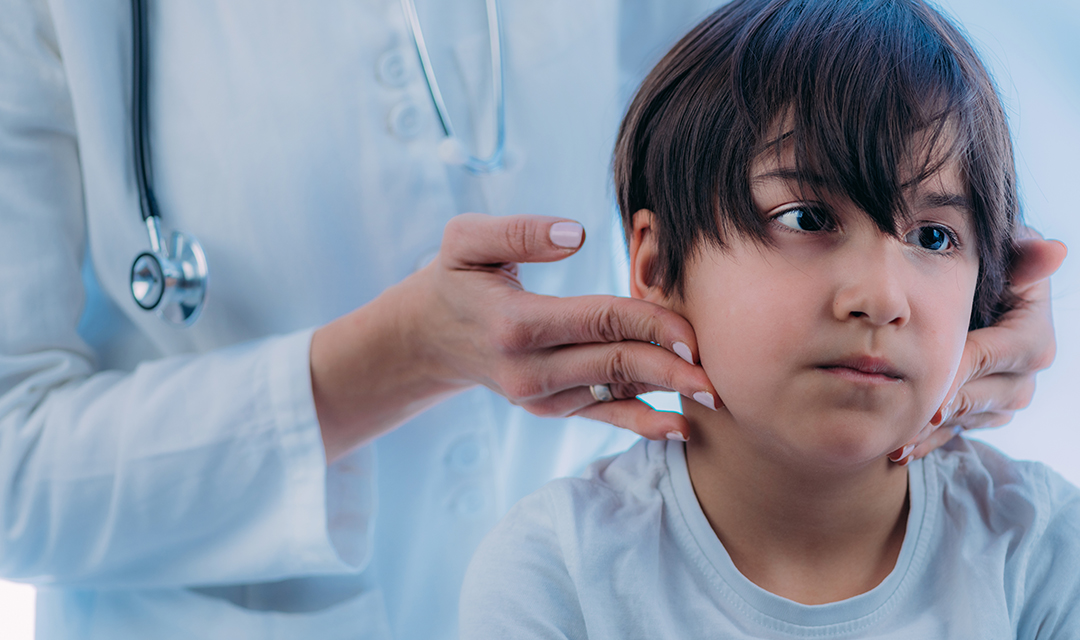Insight Urgent Care & Occupational Medicine – With chilly fall weather finally here and the school year well underway, we’re entering cold and flu season. While germs and exposure to viruses are prevalent throughout the year, illness generally peaks between the months of December and February. Each year, between 5 to 20 percent of the United States population will get the flu and the average American will experience between two to four colds, according to Villanova University. While adults and adolescents are generally able to determine if they should go out or stay home to rest when under the weather, it can be tricky to determine when to keep a child home. Here is a guide to help you determine when your child is too sick for school, as well as when to visit an urgent care provider.
Fever

Fevers are an indicator that the body is fighting an infection that could spread to others. Children should stay home from school if they are experiencing a fever of 100.4°F or higher. As a general rule, children should be able to return to school when they are fever-free for 24 hours without using medication. If the fever lasts for more than one day and gradually worsens or is accompanied by other symptoms that concern you, such as difficulty breathing, a rash, or dehydration, a visit to urgent care is recommended.
Coughs & Colds

If your child is experiencing minor cough and cold symptoms, such as a slight runny nose or an occasional cough, they can likely attend school. However, a persistent cough, congestion, and sore throat are signs of something contagious, such as influenza. If your child is experiencing these symptoms, keep them home for the day and monitor their condition. Most colds and coughs can be treated at home with over the counter medications, but consider visiting urgent care if the cough is persistent for more than one week, the cough is accompanied by chest pain, or congestion is impacting their ability to eat and drink.
Sore Throat
Mild sore throats that are not accompanied by other cold/flu symptoms are likely the result of allergies or dryness and should not prevent your child from going to school. If the sore throat is more severe and is accompanied by a cough, fever, or swollen glands, it could be a sign of something more serious that requires treatment by a healthcare professional.

Stomach Aches, Diarrhea, & Vomiting
A mild stomach ache should be watched closely but doesn’t necessarily mean a child cannot go to school. However, children should always stay home if they are experiencing diarrhea or vomiting. A general rule of thumb on when children should return to school after experiencing diarrhea or vomiting is 24 hours after they are able to eat and drink normally. Dehydration, bloody stools, abdominal pain, and diarrhea and vomiting that persists for more than 24 hours without improvement are indicators it may be necessary to visit urgent care.
Earaches
If a child is experiencing a mild earache that is not accompanied by a fever, they should be able to go to school. Moderate earaches and fever are signs of an ear infection, which means your child should stay home from school and visit urgent care for treatment. It is generally recommended that children with ear infections return to school when they begin to feel better and have been treated with antibiotics for at least 24 hours.

Skin Rashes
Minor skin rashes that are not accompanied by fever or other symptoms are likely related to allergies or an irritant and are not contagious. Rashes that are widespread, painful, and are accompanied by fever may be contagious and should be treated by a healthcare professional at urgent care. Contagious rashes, such as chicken pox and ring worm, may require a doctor’s clearance before your child can return to school.
Eye Infections
Eye infections like pink eye are highly contagious and can spread rapidly in a school setting. If your child has red, itchy eyes with discharge, keep them home from school and visit urgent care. Children are generally okay to return after symptoms improve and they have been treated with antibiotics for at least 24 hours.

Determining when to keep your child home from school can be difficult. Use these guidelines as a resource to prioritize their health, as well as the wellbeing of their classmates and teachers. If your child is not feeling well, Insight Urgent Care in Flint offers convenient, affordable care. Visit us daily from 8:00 a.m. to 8:00 p.m., no appointment necessary, and learn more about our services by visiting our website.
Frequently Asked Questions
Q: What is the difference between urgent care and the emergency room?
A: Urgent care specializes in treating illnesses and injuries that require immediate attention but are not life threatening. Urgent care is also more affordable and offers shorter wait times. Emergency rooms specialize in treating critical, life-threatening illnesses and injuries.
Q: Will my child see a pediatric specialist at urgent care?
A: Not all urgent care locations have pediatric specialists. However, they are staffed by physicians and nurse practitioners who are trained to diagnose and treat common pediatric illnesses and injuries.
Q: Can urgent care providers prescribe medications?
A: Yes. Urgent care providers are able to prescribe medications, which can be filled at pharmacies. Some urgent care providers, including Insight, offer onsite pharmacy services under one roof.

